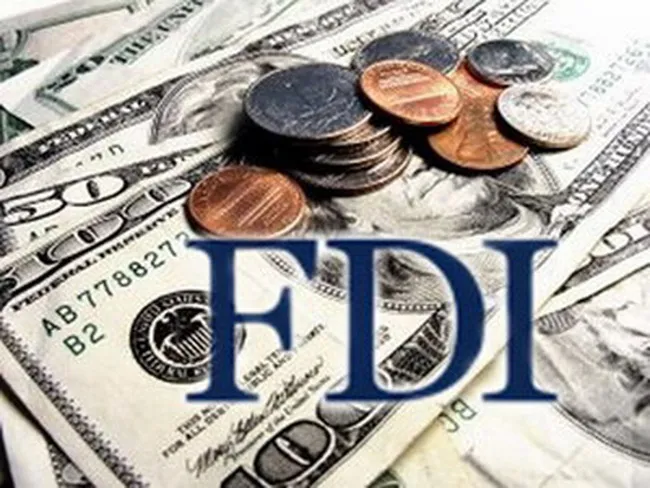
This trend aligns with standard practices where organizations typically disburse funds in the first quarter of every year after rebalancing their portfolios at the close of the previous fiscal year.
ETF Challenges
Statistics from the Ho Chi Minh City Stock Exchange (HoSE) reveal that in the first three weeks of January 2024, foreign investors have resumed net buying, with a total of nearly VND 240 billion. Notably, over the past two weeks, this group has displayed relatively strong purchasing activity, totaling approximately VND 450 billion net. While this amount may not be substantial in the context of the overall market scale, it marks a notable shift after the net sales reaching nearly USD 1 billion in 2023.
This turnaround aligns with expectations, given the standard global portfolio restructuring activities of investment funds during the fiscal year. However, despite these positive signs, Vietnam's stock market continues to face pressure from domestic Exchange-Traded Fund (ETF) funds, with capital primarily originating from Asian countries like Taiwan and Thailand. The daily fluctuations in assets for this fund group are customary, and indications of capital withdrawal from this category have not ceased.
As of January 18, 2024, data from FiinTrade reveals that prominent Exchange-Traded Fund (ETF) funds in Vietnam's stock market experienced a net withdrawal exceeding VND 1,100 billion during January. The primary source of this pressure is domestic funds, with an overall net withdrawal of about VND 1,084 billion. Key contributors to this trend include VFM Diamond (negative VND 902 billion) and SSIAM VNFIN (negative VND 326 billion), with the Diamond Fund notably influenced by Thai capital flows. In contrast, the Fubon FTSE fund, backed by Taiwanese capital, has stabilized after a notable net capital withdrawal in December 2023.
This suggests that ETF capital flows continue to face challenges, particularly from domestic funds and those with Asian capital flows, specifically from Thailand. It's important to note that when domestic ETF funds engage in market transactions, these are not classified as foreign transactions, given the involvement of domestic legal entities, even if the capital is sourced externally. Therefore, while foreign investors have shown net buying activity in January 2024, this could be indicative of proactive fund management, especially considering that the significant net selling observed in 2023 primarily originated from proactive funds. The fluctuations in ETF capital flows may signify portfolio-rebuilding activities rather than outright withdrawals, highlighting the dynamic nature of investment strategies in the market.
Reforms Needed
The imperative to upgrade Vietnam's stock market has long been recognized as a pivotal factor in attracting foreign capital flows, although addressing this challenge requires careful and sustained efforts. Presently, the Vietnamese market falls short of 9 out of 18 criteria set by MSCI's emerging market ranking, and only meets 7 out of 9 criteria according to FTSE standards. Nevertheless, optimism is on the rise, particularly since the latter half of 2023, as market regulatory bodies have actively engaged with rating agencies to address the deficiencies and explore ways to meet the criteria.
The commitment from top-tier authorities is adding momentum to this process. Notably, Prime Minister's Official Dispatch No. 1360/CD-TTg on December 13, 2023, urges the rapid implementation of tasks and solutions to upgrade the stock market. Furthermore, Decision 1726/QD-TTg, dated December 29, 2023, approves the Stock Market Development Strategy until 2030, with the objective of elevating the Vietnamese market from a frontier market to an emerging market by 2025, in alignment with the grading standards of international organizations. These concerted efforts and strategic initiatives signify a strong push towards transforming Vietnam's stock market into a more attractive destination for foreign capital.
Recognizing the stock market as a realm shaped by expectations, the process of upgrading is seen as an ongoing effort rather than an event tied to a specific timeframe. Enhancing the market's attractiveness to foreign investors hinges on the gradual fulfillment of criteria necessary for an upgrade. One potential area for improvement involves the current stringent deposit conditions in transactions, particularly the requirement for investors to deposit 100% on the day of transaction execution (T+0). This deposit remains locked until the afternoon of T+2, hindering investors from utilizing their capital advantage effectively. A reduction in this deposit rate would be a positive change, addressing an obstacle observed in international market practices.
Moreover, advancements in infrastructure are poised to play a pivotal role. The KRX system, currently in the final testing stages, is likely to be practically implemented in 2024, marking a significant milestone. While the transition to new operations like intraday trading, short selling, and options may take time post-implementation, the anticipation is fueled by the understanding that once the infrastructure is in place, operational enhancements become a matter of time. These changes are expected to bolster foreign investor confidence and interest in the Vietnamese stock market.




















